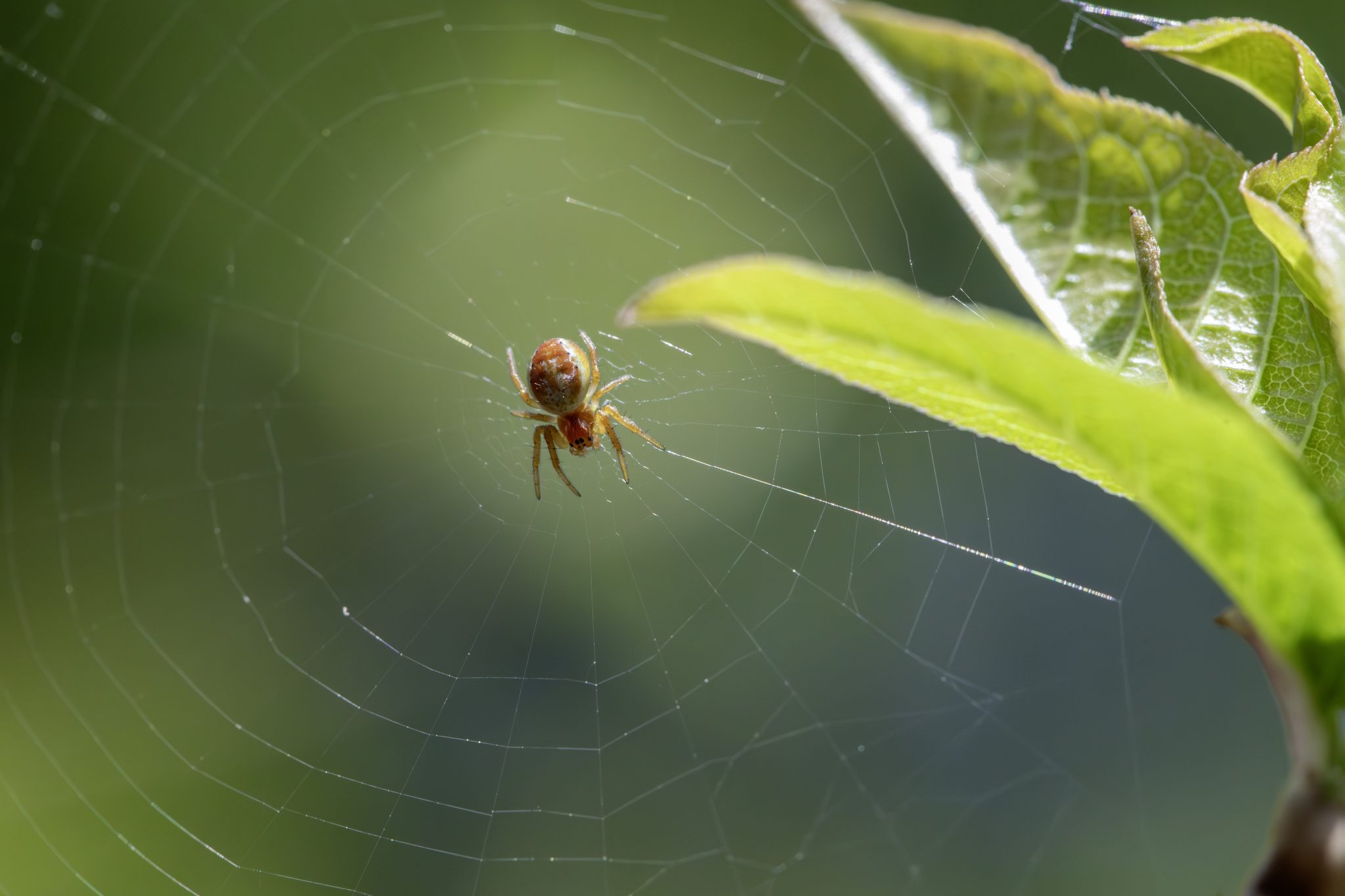🕷️ Six-spotted Orbweaver (Araniella displicata)
The Six-spotted Orbweaver is a small and brightly colored spider found across parts of North America, known for its delicate orb-shaped webs and often vibrant green hue. Despite its name, it may not always have six visible spots, but it is easily recognized by its unique coloring and compact size.
🔍 Identification
- Size:
- Females: 4–7 mm
- Males: 3–5 mm
- Color:
- Abdomen: Typically bright green with small black spots (up to six) near the rear
- Cephalothorax: Reddish to brown
- Legs: Translucent green or yellow with fine hairs
- Markings: Small black dots toward the back end of the abdomen, giving it the “six-spotted” name
🌍 Distribution & Habitat
- Range: Widely distributed in North America—including the U.S. and southern Canada
- Habitat:
- Forests, gardens, meadows, and shrublands
- Often found on leaves or low vegetation, where it spins small orb webs
🌐 Webs & Hunting
- Constructs small orb-shaped webs horizontally or at an angle between vegetation
- Typically rebuilds the web daily
- Prey: Small flying insects like gnats and flies
- Uses vibration in the web to detect prey and rapidly moves to capture and immobilize it
🧬 Behavior & Life Cycle
- Solitary except during mating season
- Reproduction:
- Males approach females cautiously to avoid being mistaken for prey
- Females lay eggs in silken sacs hidden in leaves or under bark
- Life span: One year (typically adults are seen in late spring through summer)
⚠️ Venom & Interaction with Humans
- Venom is harmless to humans
- Very unlikely to bite, and if so, the bite is mild and similar to a bug bite
- Often goes unnoticed due to small size and excellent camouflage
🌟 Fun Facts
- Sometimes confused with its European cousin, Araniella cucurbitina, which shares a similar green coloration
- Helps with natural pest control by catching small insects
- The green coloration makes it nearly invisible against leaves, protecting it from predators
🧭 Summary
The Six-spotted Orbweaver (Araniella displicata) is a tiny, vibrant spider that plays a quiet but crucial role in controlling insect populations. With its delicate web, shy nature, and brilliant green camouflage, it’s a jewel of the undergrowth—an elegant little predator that’s more helpful than harmful. Keep an eye out on garden leaves or forest foliage—you might just spot this hidden gem.
Visited 162 times, 9 visit(s) today
Views: 410
